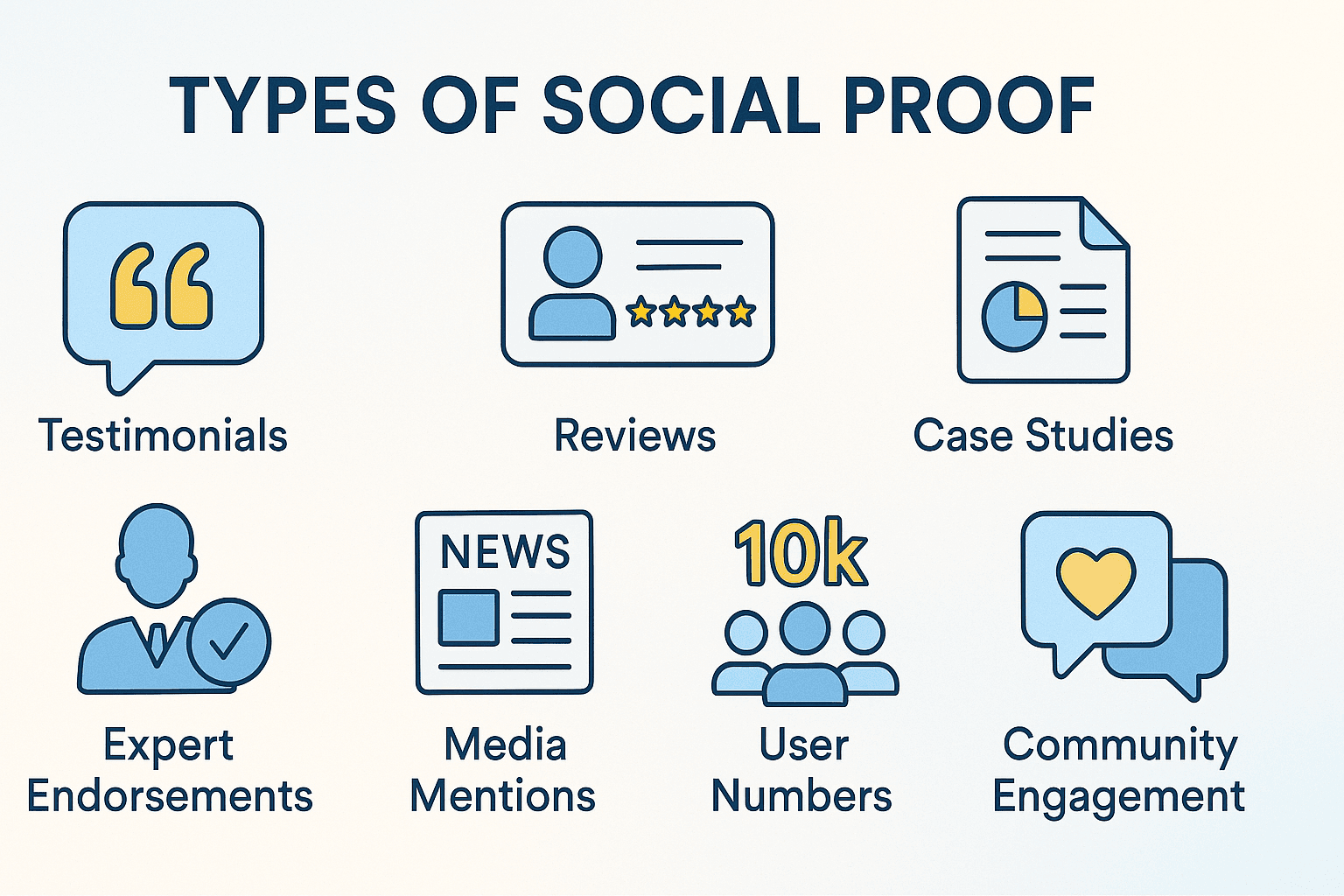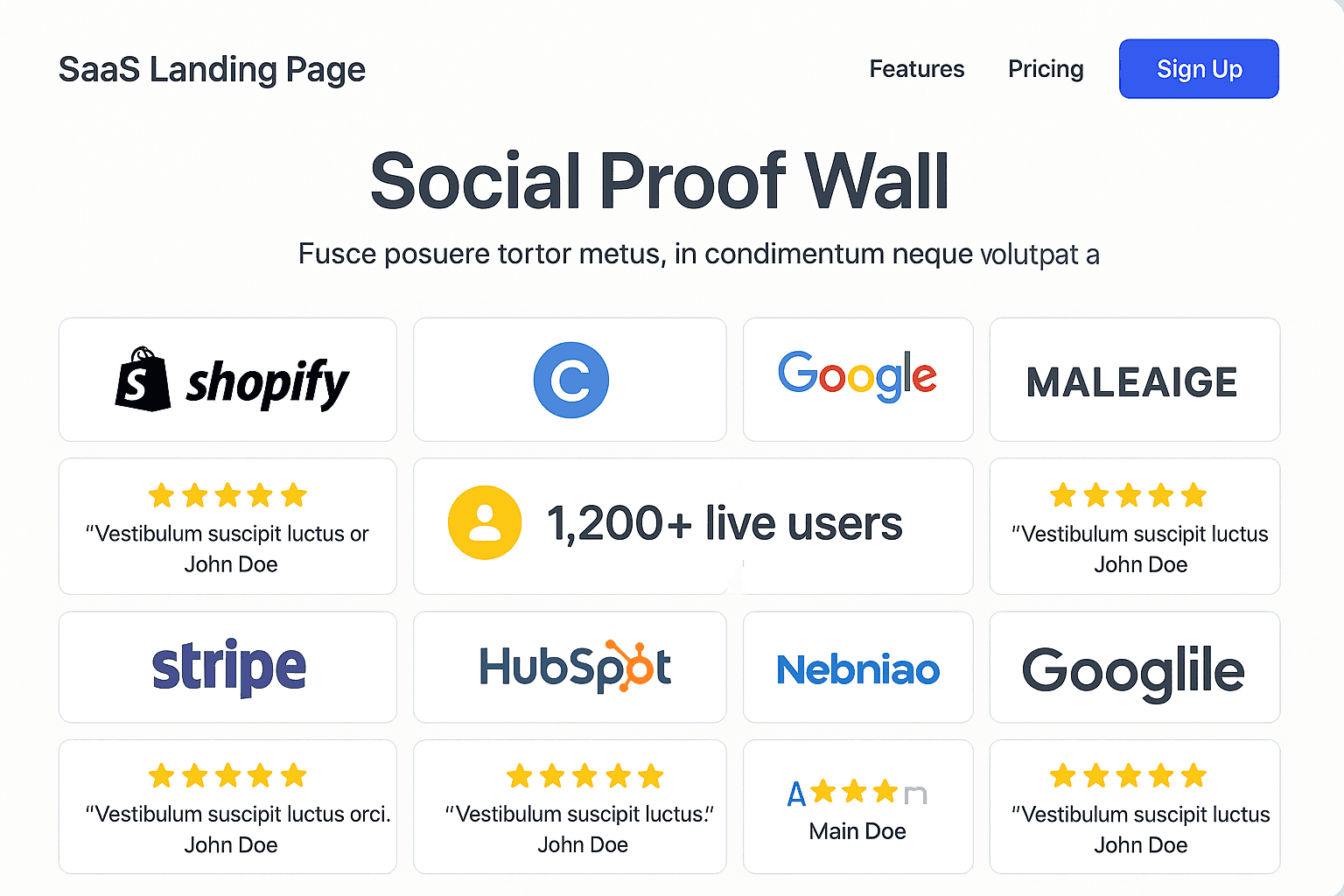Introduction
People trust people.
Before making a purchase, most users look for signals that others already trust you — whether that’s customer reviews, case studies, or media mentions.
That’s the essence of social proof: a psychological shortcut that builds instant credibility.

1. Customer Testimonials
The most direct form of social proof.
Authentic, specific testimonials resonate deeply — especially when they mention measurable outcomes or relatable pain points.
2. Online Reviews
Reviews combine authenticity and volume, creating a powerful trust signal.
Embedding Google reviews on your site with a tool like ShowAllReviews increases both visibility and credibility.
3. Case Studies
Detailed stories of client success add depth.
They prove you’ve solved real problems, and they convert analytical readers who want evidence before committing.
4. Expert Endorsements
When recognized authorities vouch for your product, it instantly boosts confidence.
Think certifications, influencer mentions, or quotes from known professionals.
5. Media Mentions
Logos from reputable publications act as trust accelerators.
They tap into the “authority bias” — the idea that we trust information validated by known institutions.
6. User Statistics
Displaying metrics such as “Over 2,000 businesses trust us” or “4.9 average rating” signals widespread approval and safety.
7. Community Proof
Show activity: reviews, comments, or even social media engagement.
Dynamic proof like “recent reviews” widgets remind visitors that your business is active and trusted right now.




